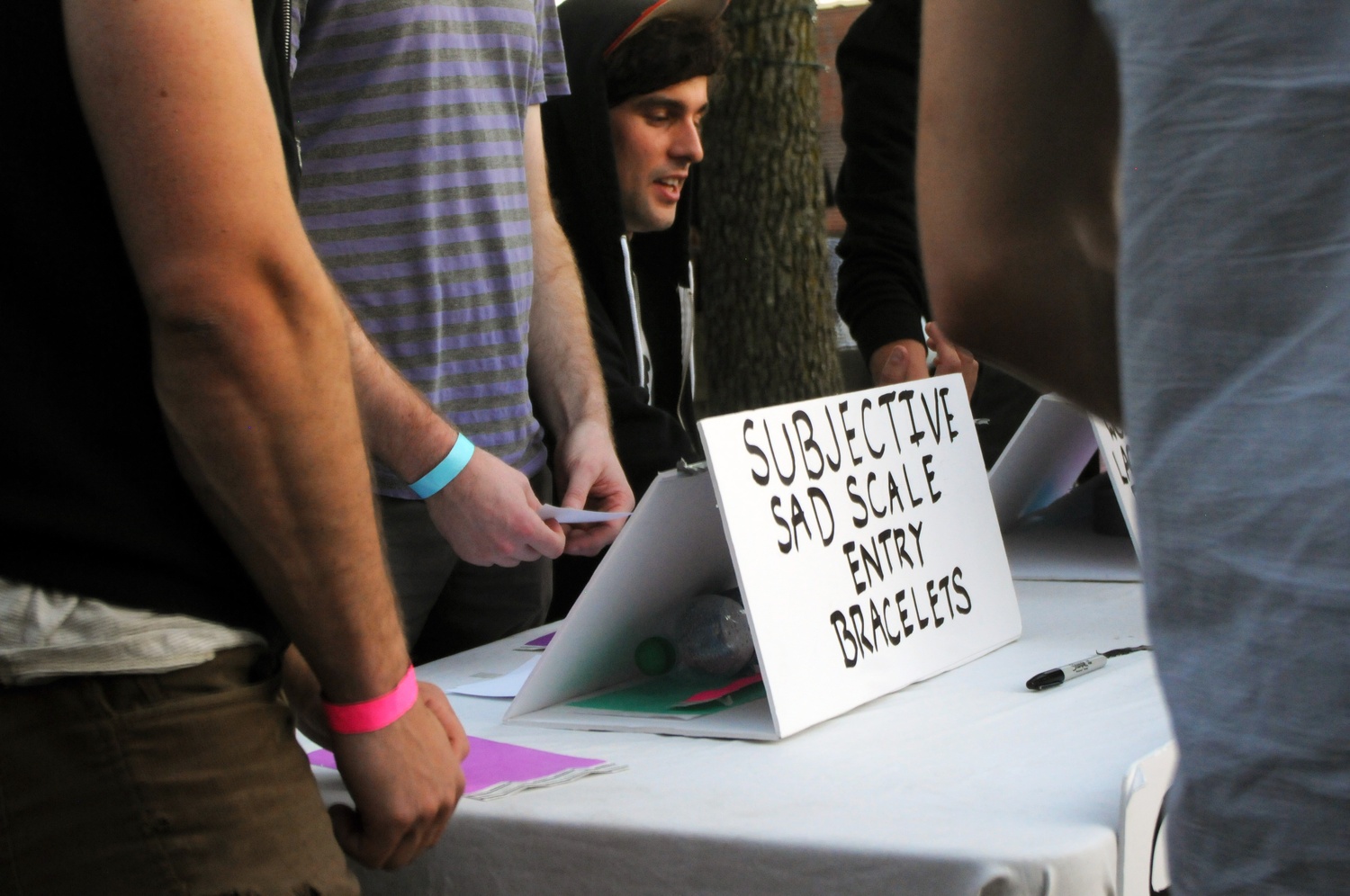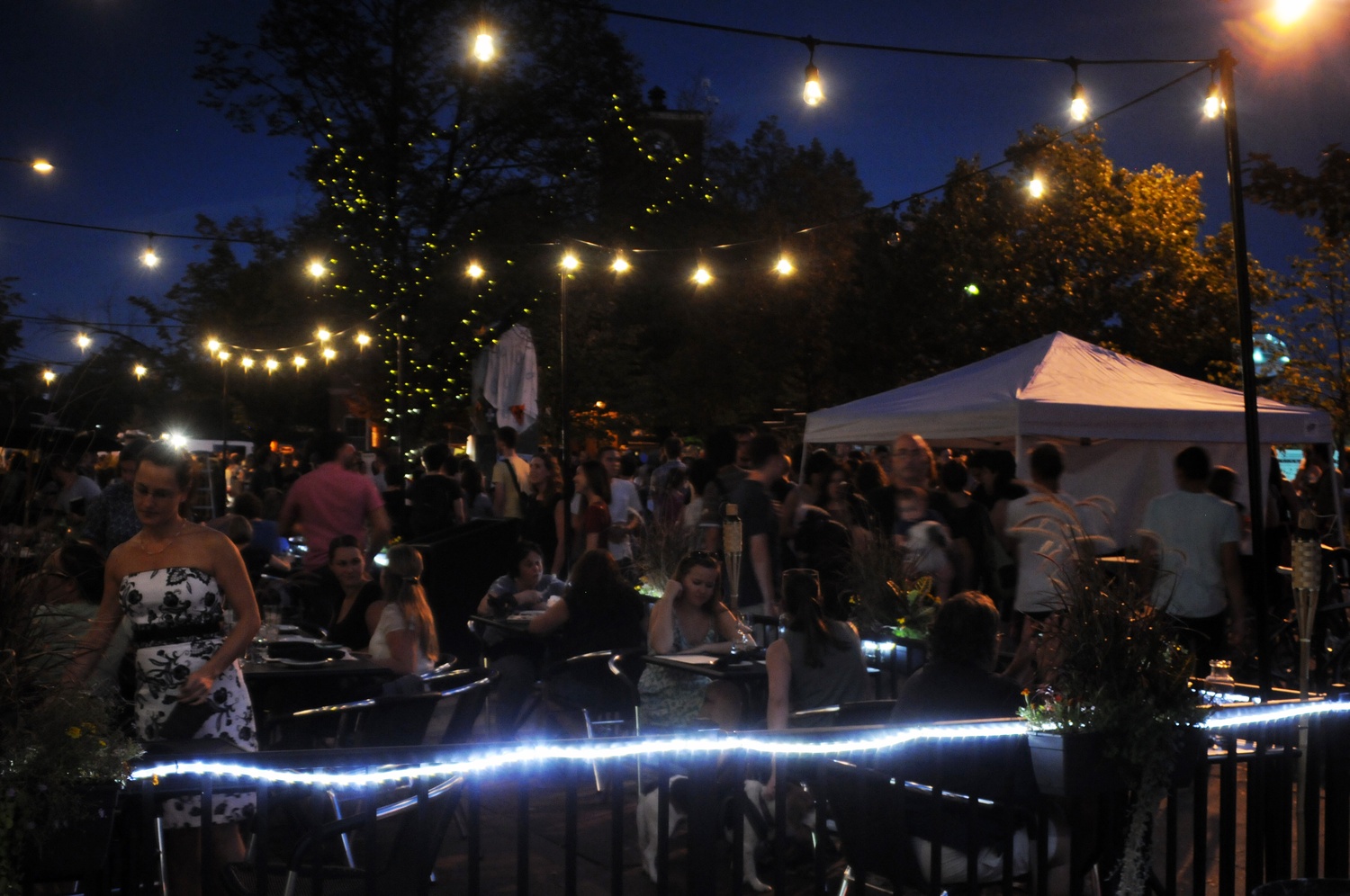Pity Party
A sad clown trudges through the crowd. The corners of his painted mouth turns down and thick kohl tears leak out of both eyes. With outstretched arms, he offers a box of tissues to everyone he passes. It’s a Thursday night in Union Square, and I am at a Pity Party.

The event is a free community block party marketed as a "deprestival." Its Facebook event page entreats visitors to "turn that grin upside down and help us make Somerville the saddest town around." Clearly, Somerville is sympathetic, because the square is packed.
It’s also loud. One layer of noise is the music, a sludgy sort of rock with a heavy bass line. Another is the sound of people, a steady rumble overlaid with one amplified male voice. I follow it to the base of a small stage.
A sad comedian stands at its center. Wearing only a bathrobe, he grips a microphone in both hands and addresses his audience with nervous eyes. “This is the most self-indulgent event I’ve ever heard of,” he says. “I mean, we’re about to celebrate how sad we are. Because it’s America! It’s 2015!”
The crowd does not laugh. A tall poet-type on my right visibly frowns. The comedian tells a joke about his mother’s depression. I frown too and fade back into the crowd.
The rest of the event is equally lurid. I pass the “Sad Sack of the Year Contest,” a table piled with application forms and a line of applicants behind it. I slow down by the “Take a Number Complaint and Catharsis Department,” which promises a comprehensive session of affirmation and consolation. I linger next to a sad art exhibit, and stare a particularly long time at a sculpture of a bird nesting in a Prozac bottle, labelled “The Bluebird of Increased Serotonin.”
But when I stop for a while, it’s at a little booth marked “Somerville Cares About Depression.” The booth is on the outskirts of the fair, and it’s less showy than the other attractions: Two people, armed with sheaves of pamphlets and a handful of informational graphics, man the whole thing. As I watch them work, I get increasingly subdued.
It’s not that the booth is tasteless. Its message has an obvious place here. References to mental health saturate the square; the whole carnival functions on the understanding that sadness is not always just sadness, that the Complaint and Catharsis Department is probably understaffed, that the Sad Sack of the Year Contest will have many runners-up.
No, the booth is tasteful. It just makes the rest of the event hideous. I feel suddenly that the music and the lights and the laughter are a terrible violence, and for a moment I wish I hadn’t come and endorsed them with my participation. I want to look away and escape to the don’t-ask-don’t-tell approach to mental health.

But as I scope out that escape, I have to look at the crowd— and I do see lights and music and laughter, but I do not see mockery. Earnest faces talk to journalists. Sincere hands clap for performance art. A woman in a sandwich board that lists her various sufferings comments: “It’s funny because it’s true.”
Yes, this Pity Party is garish. It’s not subtle, or tasteful, or particularly pleasant to watch. It paints its sadness in neon, and it forces me to look. It’s ugly— and it’s right. Exhibition is communication. Subtlety doesn’t draw crowds.
Please, write your sadness on a sandwich board. Sketch it in kohl on your face. Do anything except keep it to yourself. And when others do the same, look.


